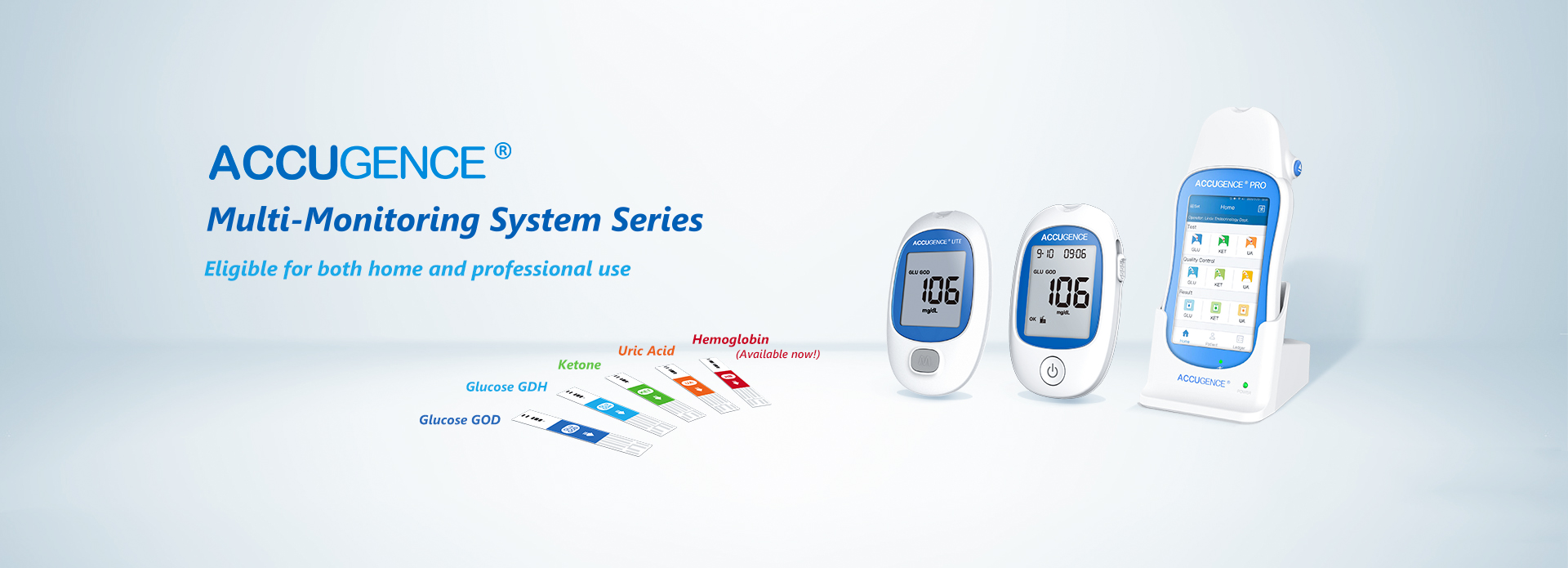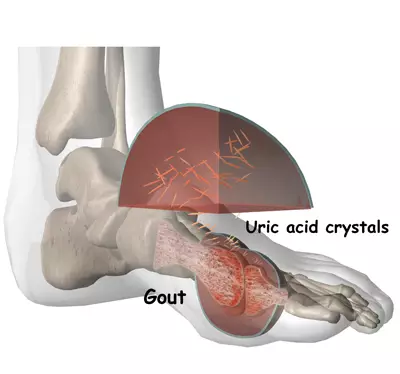World Gout Day-Precision Prevention, Enjoy Life
April 20, 2024 is World Gout Day, the 8th edition of the day when everyone pays attention to gout. This year’s theme is “Precision Prevention, Enjoy Life”. High uric acid level above 420umol/L is referred to as hyperuricemia, which can lead to uric acid crystal deposition, gouty arthritis, and eventually gouty tophi formation and joint deformities. The purpose of World Gout Day is to raise awareness among the public about hyperuricemia and gout through educational campaigns, in order to promote scientific management, and to minimize the damage caused by hyperuricemia and gout to the body.
The ACCUGENCE® Multi-Monitoring System can provide a convenient and simple uric acid test method and accurate test results, which are sufficient to support the daily monitoring needs during the treatment process.
Overview of Gout
Gout is a form of inflammatory arthritis that occurs when there is a buildup of uric acid crystals in the joints. Here is a comprehensive overview of gout, including its symptoms, causes, risk factors, and impact on the body and quality of life:
Symptoms of Gout:
Sudden and severe joint pain, often in the big toe (also known as podagra)
Swelling, redness, and warmth in the affected joint
Tenderness and stiffness in the joint
Limited range of motion in the joint
Recurrent gout attacks
Causes of Gout:
High levels of uric acid in the blood (hyperuricemia)
Uric acid crystals form and deposit in the joints, triggering inflammation and pain
Uric acid can accumulate due to the body producing too much or excreting too little of it
Risk Factors for Gout:
Genetics or family history of gout
Diet high in purine-rich foods (red meat, organ meats, seafood, and alcohol)
Obesity
Certain medical conditions like hypertension, diabetes, and kidney disease
Certain medications like diuretics and low-dose aspirin
How Gout Affects the Body:
Uric acid crystals cause inflammation in the joints, leading to intense pain and swelling
Chronic gout can cause joint damage and deformity
Gout attacks can become more frequent and severe over time if left untreated
Uric acid crystals can also deposit in other tissues like the kidneys, leading to kidney stones and kidney damage
In summary, gout is a painful and disabling form of arthritis caused by the buildup of uric acid crystals in the joints. It can have a significant impact on a person’s quality of life, affecting physical, emotional, and social well-being. Early diagnosis, proper management, lifestyle modifications, and medication can help control gout and improve the overall quality of life for individuals living with this condition. If you have any more questions or need further information, feel free to ask.
Gout Prevention and Management
Gout is a form of inflammatory arthritis characterized by sudden and severe attacks of pain, swelling, redness, and tenderness in the joints, most commonly occurring in the big toe. Lifestyle changes play a crucial role in preventing gout and managing the condition effectively. Here are some key points regarding the importance of lifestyle modifications in gout prevention:
Dietary modifications: A diet high in purine-rich foods, such as red meat, organ meats, shellfish, and certain types of fish, can increase the level of uric acid in the blood, which can lead to gout attacks. By making dietary changes and limiting the intake of purine-rich foods, individuals can reduce the risk of gout. Consuming a diet rich in fruits, vegetables, whole grains, and low-fat dairy products can help lower uric acid levels and prevent gout attacks.
Weight management: Being overweight or obese is a significant risk factor for gout, as excess body weight can lead to increased production of uric acid in the body. By maintaining a healthy weight through a balanced diet and regular exercise, individuals can reduce the risk of developing gout and experiencing gout attacks.
Hydration: Staying well-hydrated by drinking plenty of water throughout the day can help prevent gout attacks by flushing out excess uric acid from the body. Adequate hydration can also help reduce the risk of kidney stone formation, which is another complication of gout.
In addition to lifestyle changes, medication and medical intervention play an important role in managing gout and preventing gout attacks. Here are some key points to consider:
Medications: There are medications available to treat gout and prevent gout attacks. These include nonsteroidal anti-inflammatory drugs (NSAIDs), colchicine, and corticosteroids, which can help reduce pain and inflammation during gout attacks. Additionally, medications such as allopurinol and febuxostat can lower uric acid levels in the blood and prevent the formation of uric acid crystals in the joints.
Medical intervention: In severe cases of gout or when gout attacks are frequent and debilitating, medical intervention may be necessary. This can include procedures such as joint aspiration (removal of excess fluid from the affected joint) or surgery to remove tophi (accumulation of uric acid crystals) from the joints.
Overall, a combination of lifestyle modifications, medication, and medical intervention is key to effectively managing gout, preventing gout attacks, and improving overall quality of life for individuals with this condition. It is important for individuals with gout to work closely with healthcare professionals to develop a comprehensive treatment plan tailored to their specific needs and health status.
Post time: Apr-19-2024




